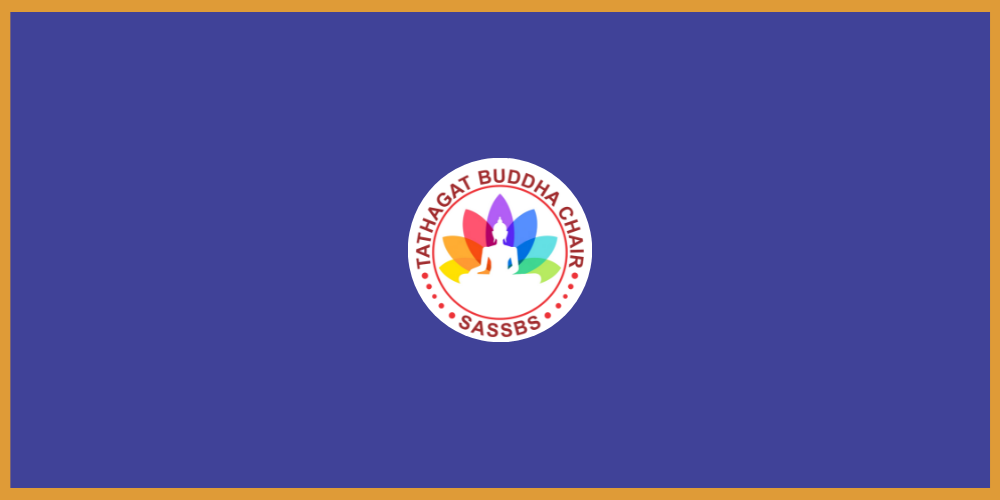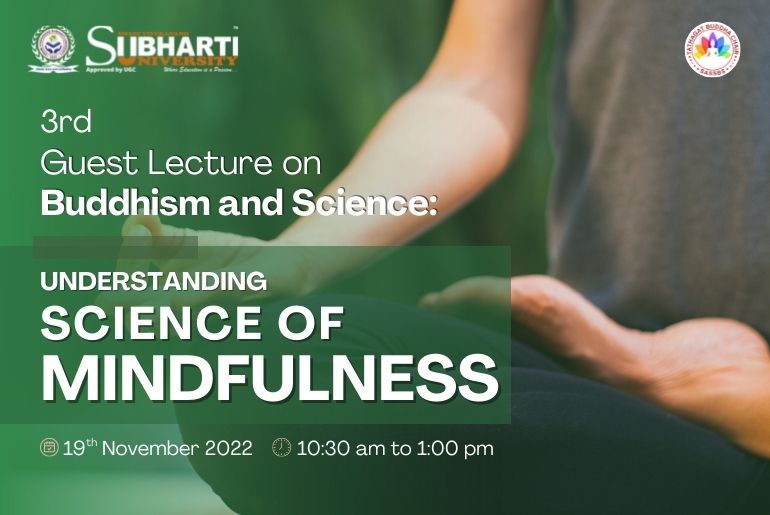Tathagat Buddha Chair

na hi verena verāni sammantīdha kudācanaṃ
averena ca sammanti esa dhammo sanantano
“Hatred is, indeed, never appeased by hatred in this world. It is appeased only by loving-kindness. This is an ancient law.” Dhammapada (Verse-5)
Siddhartha Gautama, the founder of Buddhism known as “the Buddha,” or “Tathagat Buddha” lived during the 5th century B.C.
Gautama was born as a Prince. He had a comfortable life; still, He was moved by suffering in the world.
He left his luxurious life to endure poverty. When this did not bring him satisfactory results, he promoted the idea of the “Middle Way,” that is avoiding the two extremes. Thus, he sought life without social indulgence as well as deprivation.
After six years of search, followers of Buddhism believe that Gautama attained enlightenment while meditating under a Bodhi tree. His life thereon was dedicated to preaching regarding the attainment of the spiritual state.
When Gautama got Mahaparinirvana around 483 B.C., his followers began to organize a religious movement. His teachings became the foundation for what would later develop into Buddhism.
In the 3rd century B.C., The Great Mauryan King Ashoka declared Buddhism as the state religion of India. Buddhist monasteries were built, and missionary work was encouraged.
Over the next few centuries, Buddhism spread beyond India. With increased geographies, the thoughts and philosophies of Buddhists also increased, since some followers started interpreting the teachings accordingly and differently.
Buddha’s teachings are known as “dharma.” He taught that wisdom, kindness, patience, generosity, and compassion were important virtues in life.
The following five precepts are specifically prohibited to all Buddhists.
- Killing living things
- Taking what is not given
- Sexual misconduct
- Lying
- Using drugs or alcohol
Four Noble Truths
The Four Noble Truths, which Buddha taught, are:
- The truth of suffering (dukkha)
- The truth of the cause of suffering (samudaya)
- The truth of the end of suffering (nirhodha)
- The truth of the path that frees us from suffering (magga)
These principles together explain why Human beings are hurt and what is the solution.
Since the advent of Buddhism, its philosophy has spread around the world. Particularly, in Ashoka’s reign. Historically, Meerut has been under the vast influence of Buddhist culture since the third century BC as there existed an Ashokan Pillar in Meerut in those times which was later relocated to Delhi by Emperor Firoz Shah Tughlak. The sultan is said to have learned about this Ashokan Pillar existing in Meerut in the 14th century and he got it transported to Delhi. Later he got it installed near his hunter’s lodge along the river Yamuna very close to where Hindu Rao hospital stands today. There are two Ashoka pillars in Delhi. One of the pillars was transported from Topra on Firozshah Tughlaq's orders. The other pillar, brought from Meerut, is seen installed near Bara Hindu Rao Hospital near Delhi University. Ashokan Pillar in Delhi was transported in Delhi by Firoz Shah Tughlak, who ruled Delhi from 1351 to 1388. Some historians are of the opinion that this magnificent structure was built by the Mauryan emperor, Ashoka in the third century. And that is perhaps how it derives its name.
Buddhism has been flourishing everywhere in the world and is now among the world’s largest religions. However, it does not hold the same view for its motherland that is India as it has been observing a sharp decline in India.
Tathagat Buddha Chair is the Center of learning for intellectuals, academicians, and students to undertake studies and research to disseminate the ideas and thoughts of Tathagat Buddha.
The Chair is undertaking research and higher studies concerning social, human values, Buddha’s teachings, and thought of Buddha.
Broadly, the Chair serves as the Center of learning and research. However, It doesn’t restrict itself to the subjects concerning Tathagat Buddha and Philosophy but would try to include issues of the socio-economic sector, cultural and religious life, peace, meditation, yoga, and stress.
To achieve these objectives, the Chair is conducting research on understanding and spreading the ideas of Buddha and his philosophy. The Chair organizes interactive seminars, webinars, conferences, symposiums, etc thereby creating a holistic learning environment that can help the individuals to grow.
The Kuru Museum is also established by Tathagat Buddha Chair in Samrat Ashok Subharti School of Buddhist Studies, Swami Vivekananda University Meerut. In this museum, pottery, toys, etos, coins, etc., obtained from various historical mounds of Kuru Pradesh have been kept for reminiscence. In this museum, many antiquities derived from historical mounds of districts like Meerut, Hapur, Ghaziabad, Baghpat, etc. have also been preserved. Paintings of idols' step wells and many buildings have also been displayed. Essentially, this museum is a center of knowledge for the students of history as well as other students and the general public.
Meerut has been a major center of Buddhism since ancient times. From here, Ashoka’s Pillar has been found, which is currently located in Delhi. This vast region of Kuru Mahajanapada obtained many potteries and many idols related to Buddhism from many mounds and places. Many antiquities from various villages also find a place in this museum.
The Kuru Museum has been specially designed keeping in mind the Buddhist antiquities. The museum houses; the Indus Valley Civilization, Vedic Civilization, Mauryan Gupta period, Kushan period, and Rajput period as well as antiquities from the Muslim period.
The Tathagat Buddha Chair is located at Samrat Ashok Subharti School of Buddhist Studies, Swami Vivekanand Subahrti University, Meerut.
To carry out the above-mentioned objectives and to discipline the functions assigned to them, the following staff is posted in Tathagat Buddha Chair :
S.No. |
Name |
Name of the Post |
1. |
Dr. Champalal Mandrele |
Convener |
2. |
Dr. Harish Kumar |
Associate Professor |
3. |
Ms. Pallavi Tyagi |
Research Officer |
4. |
Mr. Praveen Kumar |
Stenographer |
Contact email:
tathagat@subharti.org
News & Events
Friday 3rd February, 2023

तीन दिवसीय “प्रथम कौरवी लोक महोत्सव”
For more information click the button given below.
Read moreThursday 17th November, 2022

3rd Guest Lecture on Buddhism and Science: “Understanding Science of Mindfulness”
For more information click the button given below.
Read moreSunday 16th January, 2022

Inauguration of Bodhi Upwan
For more information click the button given below.
Read moreSaturday 23rd October, 2021

A delegation of the Tathagat Buddha Chair was invited, to the inauguration of the International Airport at Kushinagar.
For more information click the button given below.
Read moreFriday 22nd October, 2021

Miss Pallavi Tyagi in conversation with Mr. Lakshman Namal Rajapaksa, Minister of Youth and Sports, Sri Lanka
For more information click the button given below.
Read more